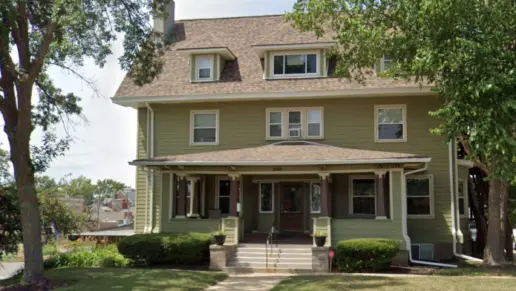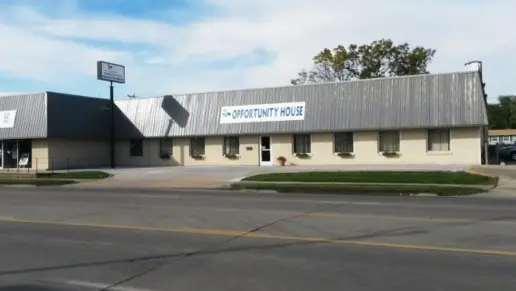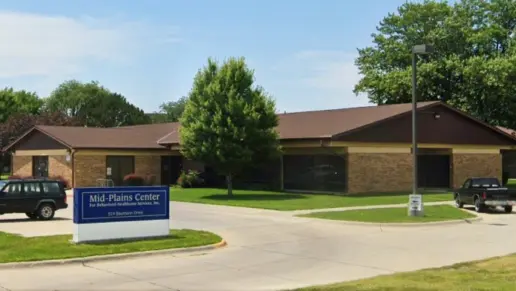Being admitted here is a living nightmare, their staff repetitively lied to me and about me while abusing me mentally and physically, these people are straight up criminals. I would have been better off committing a felony and going to prison for years because what they did ...
About CHI Health Psychiatric Associates at Lasting Hope
Lasting Hope Recovery Center in Omaha, Nebraska, provides treatment for mental health and substance abuse. They also provide dual diagnosis treatment for mental health challenges such as anxiety, depression and other mood disorders. They’ll work with you to create a personalized care plan to fit your unique needs. Payment options include insurance and self pay.
Their standard outpatient programs might be a good fit for you if you need support but don’t require round the clock care. Outpatient treatment allows you to maintain your daily responsibilities like work and school while receiving care. This flexible option offers therapy sessions, medication management and support groups that fit around your schedule. It’s ideal if you have a stable home environment and need a less intensive level of support.
Their intensive outpatient program is a step up from traditional outpatient care. It’s appropriate if you need more structured support but don’t require inpatient care. This program involves more frequent therapy sessions which are usually held several times each week.
Their inpatient programs provide a more intensive level of care if you’re experiencing more severe addiction challenges. These programs offer around the clock support and supervision in a structured environment. You’ll live onsite and participate in various therapies such as individual counseling, group therapy and psychiatric care. Your treatment will focus on stabilizing your situation and helping you develop a comprehensive plan for long term recovery. This inpatient setting is particularly beneficial if you’re going through detox or experiencing a severe psychiatric crisis.
Once you complete treatment you may receive aftercare. These services provide ongoing support for long term success. They may include continued counseling, support groups and referrals to community resources.
Latest Reviews
Rehab Score
Gallery
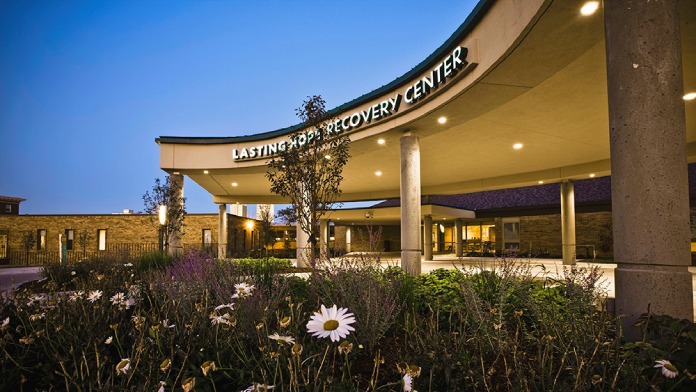
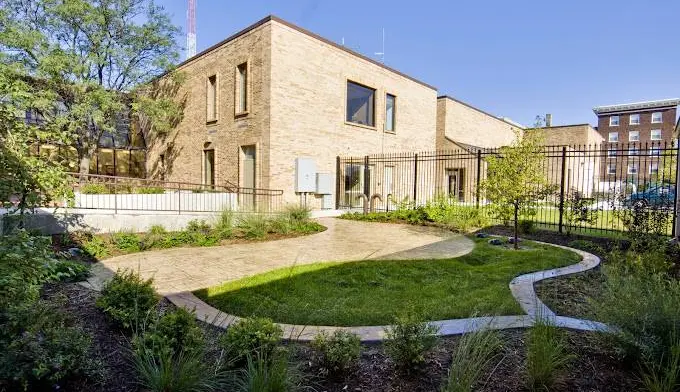
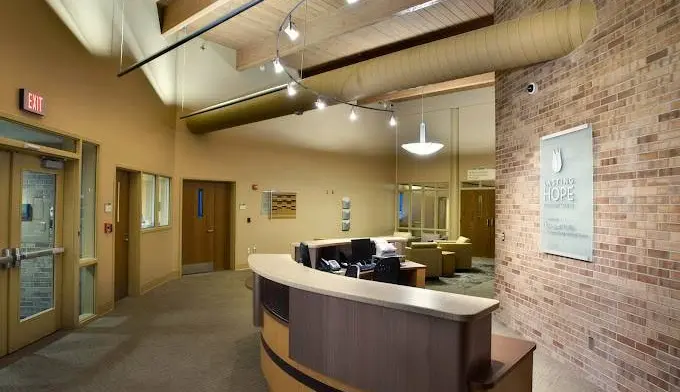

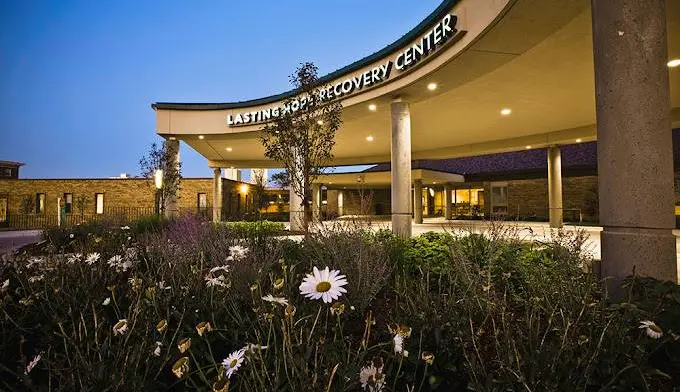
Location
Accepted Insurance
Other Forms of Payment
Medicaid is a state based program that helps lower-income individuals and families pay for healthcare. Medicaid covers addiction treatment so those enrolled can use their coverage to pay for rehab. When a program accepts Medicaid the client often pays very little or nothing out of their own pocket.
Private insurance refers to any kind of healthcare coverage that isn't from the state or federal government. This includes individual and family plans offered by an employer or purchased from the Insurance Marketplace. Every plan will have different requirements and out of pocket costs so be sure to get the full details before you start treatment.
Self-pay involves paying for treatment out of your own pocket. You can use savings or credit, get a personal loan, or receive help from family and friends to fund your treatment. If you don't have insurance or your insurance plan doesn't cover a specific program, self-pay can help ensure you still get the care you need.
Financial aid can take many forms. Centers may have grants or scholarships available to clients who meet eligibility requirements. Programs that receive SAMHSA grants may have financial aid available for those who need treatment as well. Grants and scholarships can help you pai for treatment without having to repay.
Medicare is a federal program that provides health insurance for those 65 and older. It also serves people under 65 with chronic and disabling health challenges. To use Medicare for addiction treatment you need to find a program that accepts Medicare and is in network with your plan. Out of pocket costs and preauthorization requirements vary, so always check with your provider.
Military members, veterans, and eligible dependents have access to specific insurance programs that help them get the care they need. TRICARE and VA insurance can help you access low cost or no cost addiction and mental health treatment. Programs that accept military insurance often have targeted treatment focused on the unique challenges military members, veterans, and their families face.
Addiction Treatments
Levels of Care
Treatments
Many of those suffering from addiction also suffer from mental or emotional illnesses like schizophrenia, bipolar disorder, depression, or anxiety disorders. Rehab and other substance abuse facilities treating those with a dual diagnosis or co-occurring disorder administer psychiatric treatment to address the person's mental health issue in addition to drug and alcohol rehabilitation.
Mental health rehabs focus on helping individuals recover from mental illnesses like bipolar disorder, clinical depression, anxiety disorders, schizophrenia, and more. Mental health professionals at these facilities are trained to understand and treat mental health issues, both in individual and group settings.
Programs




Clinical Services
Cognitive Behavioral Therapy (CBT) is a therapy modality that focuses on the relationship between one's thoughts, feelings, and behaviors. It is used to establish and allow for healthy responses to thoughts and feelings (instead of unhealthy responses, like using drugs or alcohol). CBT has been proven effective for recovering addicts of all kinds, and is used to strengthen a patient's own self-awareness and ability to self-regulate. CBT allows individuals to monitor their own emotional state, become more adept at communicating with others, and manage stress without needing to engage in substance abuse.
Group therapy is any therapeutic work that happens in a group (not one-on-one). There are a number of different group therapy modalities, including support groups, experiential therapy, psycho-education, and more. Group therapy involves treatment as well as processing interaction between group members.
In individual therapy, a patient meets one-on-one with a trained psychologist or counselor. Therapy is a pivotal part of effective substance abuse treatment, as it often covers root causes of addiction, including challenges faced by the patient in their social, family, and work/school life.
Trauma therapy addresses traumatic incidents from a client's past that are likely affecting their present-day experience. Trauma is often one of the primary triggers and potential causes of addiction, and can stem from child sexual abuse, domestic violence, having a parent with a mental illness, losing one or both parents at a young age, teenage or adult sexual assault, or any number of other factors. The purpose of trauma therapy is to allow a patient to process trauma and move through and past it, with the help of trained and compassionate mental health professionals.
Staff

President and Chief Executive Officer

Chief Medical Officer

Chief Strategy Officer

Chief Information Officer

Chief Financial Officer

Chief Human Resources Officer

Chief Medical Officer
Contact Information
415 South 25 Avenue
Omaha, NE 68131




